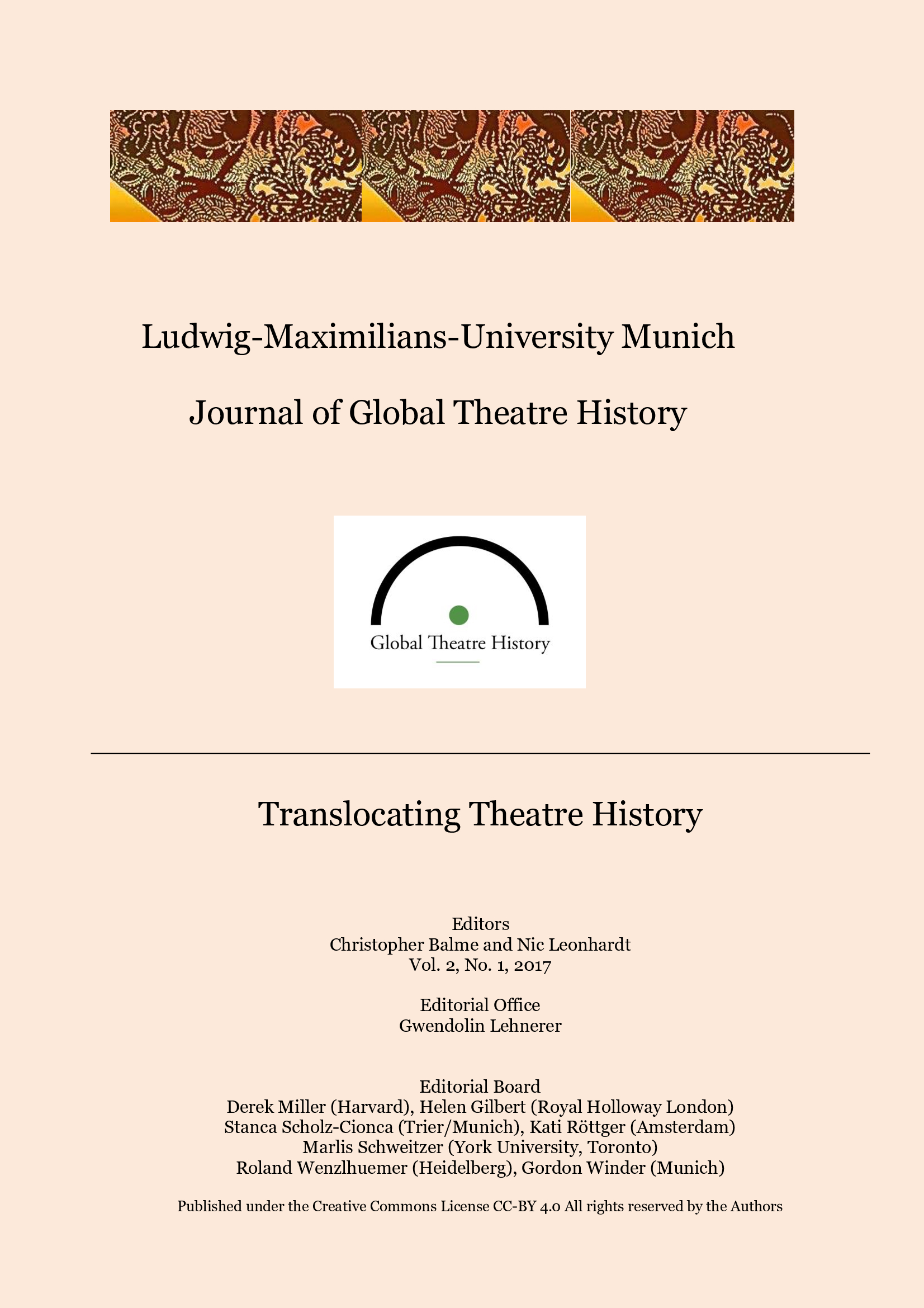Travelling Theatre Companies and Transnational Audiences. A Case Study of Croatia in the Nineteenth Century
DOI:
https://doi.org/10.5282/gthj/5064Abstract
For over a hundred and fifty years, the travelling German theatre companies were some of the most important mediators of the common cultural identity of the Habsburg Monarchy. By tirelessly travelling across the borders of the German-speaking area, they encouraged the emergence of a transnational theatre market in the German language, which extended beyond the borders of the empire, and shaped the theatrical taste of a
multi-ethnic audience for decades. This article examines the political and social factors that promoted this transnational distribution of German theatre in the nineteenth century. Particular attention is paid to the linguistic identities of the empire and the model function that Vienna played in shaping the lifestyle and the imagined cultural communities throughout the monarchy. The case study of two Croatian theatre centres – Zagreb and Osijek – examines the role played by the travelling German theatre companies in the spread of the common cultural identity on the one hand and in the
development of professional Croatian theatre on the other.
Downloads
Veröffentlicht
Ausgabe
Rubrik
Lizenz
Copyright (c) 2018 Danijela Weber-Kapusta

Dieses Werk steht unter der Lizenz Creative Commons Namensnennung 4.0 International.



